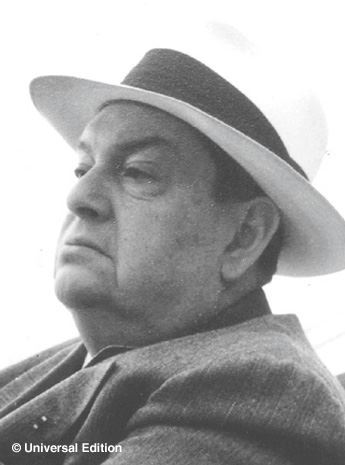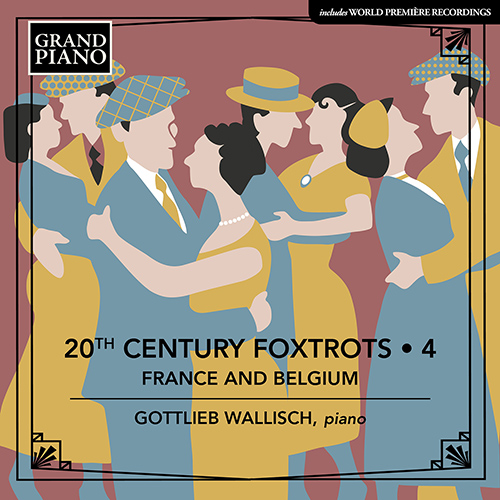
Darius Milhaud (1892 - 1974)
Born into a Jewish family in the southern French city of Aix-en-Provence, Darius Milhaud was trained at the Paris Conservatoire; originally a violinist, he turned to composition. He enjoyed a close association with the diplomat-poet Paul Claudel, whom he accompanied to Brazil as secretary when Claudel was appointed Minister at the French delegation in Rio de Janeiro. On his return to Paris in 1918, after two years abroad, Milhaud was for a time in the circle of Jean Cocteau and a member of the diverse group of French composers known as Les Six. Extremely prolific as a composer in many genres, Milhaud spent the years of the Second World War in the United States, where he taught, combining this position with a similar post at the Paris Conservatoire after 1947.
Stage Works
Darius Milhaud wrote a considerable amount of music for the theatre (operas, ballets and incidental music) as well as film and radio scores. Collaboration with Claudel brought the opera Christophe Colombe and incidental music for plays ranging from those of Shakespeare to the work of contemporaries such as Brecht, Supervielle, Giraudoux and Anouilh. With Cocteau he wrote the ballets Le Boeuf sur le Toit (‘The Ox on the Roof’) and the jazz La Création du Monde (‘The Creation of the World’). These represent only a small fraction of his dramatic work.
Orchestral Music
Milhaud was equally prolific as a composer of orchestral music of all kinds, including 12 symphonies and a variety of concertos, some of which reflect the influence of his native Provence.
Vocal and Choral Music
Milhaud also contributed widely to the repertoire of French song. His settings (both choral and solo voice with piano) are of texts from a great variety of sources, including Rabindranath Tagore, André Gide, and the words of Pope John XXIII (the last in a choral symphony Pacem in terris). He contributed to Cocteau’s Les Mariés de la tour Eiffel and, as a gesture, set to music an agricultural appliance catalogue. Other works reflect his Jewish background.
Chamber Music
Milhaud wrote 18 string quartets and provided useful additions to duo sonata repertoire, not least for the viola. His Quatre Visages of 1943 for viola and piano comprises musical representations of four different kinds of girls. For wind quintet he composed the charming suite La Cheminée du Roi René, and for oboe, clarinet and bassoon he wrote the attractive Pastorale. The works show his characteristically French adroitness in writing for woodwind instruments.
Piano Music
Two works in particular have proved attractive additions to repertoire. The first, Saudades do Brasil, a suite for piano, is based on music heard in Brazil during the composer’s stay there between 1916 and 1918. Scaramouche, arranged for two pianos from incidental music for Molière’s Le Médécin volant, is a lively jeu d’esprit, in the spirit of the commedia dell’arte character of the title. La Muse ménagère (‘The Domestic Muse’) reflects the necessary wartime attempts at house-keeping by his actress wife.


 Grand Piano has gained a reputation for producing high quality recordings of rare keyboard gems. Dedicated to the exploration of undiscovered piano repertoire, the label specialises in complete cycles of piano works by many lesser-known composers, whose output might otherwise have remained unknown and unrecorded.
Grand Piano has gained a reputation for producing high quality recordings of rare keyboard gems. Dedicated to the exploration of undiscovered piano repertoire, the label specialises in complete cycles of piano works by many lesser-known composers, whose output might otherwise have remained unknown and unrecorded.






